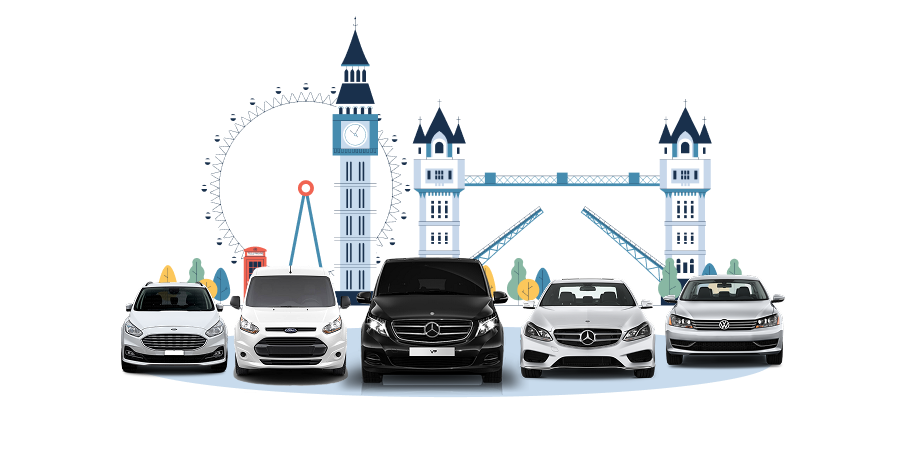Air Minicabs: A Glimpse into the Future of Transportation

Concept of Air transfers
Air transfers, a concept once confined to the realm of science fiction, are now on the brink of becoming a reality. These futuristic vehicles, also known as flying cars or eVTOLs (electric Vertical Takeoff and Landing), are designed to provide quick, efficient, and eco-friendly transportation, bypassing the congestion of traditional roadways. The idea is to create a network of small, electric aircraft that take off and land vertically, offering a new way to move people around cities and revolutionizing urban mobility. Companies like Uber, Airbus, and Lilium are investing heavily in this technology, with prototypes already taking to the skies. The potential benefits are immense, from reducing travel times and traffic congestion to lowering carbon emissions. However, there are still significant hurdles to overcome, including regulatory approval, infrastructure development, and public acceptance. Despite these challenges, the concept of air transfers represents a fascinating glimpse into the future of transportation.
Air transfer Companies
Air transfer companies are revolutionizing the future of transportation, offering a glimpse into a world where commuting through the skies is as common as hailing a transfer. These companies are developing electric vertical take-off and landing (eVTOL) aircraft, designed to transport passengers over congested city streets and across urban landscapes. Companies like Joby Aviation, Lilium, and Volocopter are leading the charge, with prototypes already in testing stages. They promise a future where air transfers are not only faster but also more sustainable, aiming to reduce carbon emissions and traffic congestion. However, challenges remain, including regulatory hurdles and public acceptance. Despite these, the potential benefits of air transfers - reduced travel times, less traffic, and lower emissions - make them an exciting prospect for the future of urban transportation. As technology advances and air transfer companies continue to innovate, the dream of hopping into an air transfer for a quick cross-city trip is becoming increasingly tangible.
Air transfer Technology
Air transfer technology is revolutionizing the future of transportation, promising a new era of convenience and efficiency. These autonomous, electric-powered aircrafts are designed to transport people or goods over short to medium distances within urban areas. The technology behind Air transfers is a blend of advancements in electric propulsion, autonomous flight systems, and vertical take-off and landing (VTOL) capabilities. This combination allows for a quiet, emission-free, and traffic-avoiding mode of transportation. Companies like Uber and Airbus are already investing heavily in this technology, envisioning a future where air transfers are as common as cars. However, there are still challenges to overcome, including regulatory hurdles, safety concerns, and public acceptance. Despite these obstacles, the potential benefits of air transfer technology are immense. It could significantly reduce travel times, decrease road congestion, and contribute to a more sustainable future. As such, Air transfers represent a fascinating glimpse into the future of transportation.
Regulation of Air transfers
The future of transportation is set to take a dramatic turn with the advent of air transfers. However, the regulation of these futuristic vehicles is a topic that needs immediate attention. As air transfers are expected to operate in the same airspace as commercial aircraft, stringent regulations are necessary to ensure safety and efficiency. Regulatory bodies worldwide are now grappling with the challenge of integrating air transfers into existing air traffic management systems. The rules need to address various aspects such as flight paths, altitude levels, speed limits, and safety protocols. Furthermore, the environmental impact of air transfers, including noise pollution and carbon emissions, must also be considered. The success of air transfers as a viable mode of transportation largely depends on the effectiveness of these regulations. As we stand on the brink of a new era in transportation, the regulation of air transfers will undoubtedly play a pivotal role in shaping the future.
Infrastructure for Air transfers
The future of transportation is set to take a dramatic turn with the advent of air transfers. This revolutionary concept is not just about the vehicles themselves, but also the infrastructure that supports them. Air transfer infrastructure will include vertical take-off and landing (VTOL) pads, charging stations, and air traffic control systems. These will be strategically located in urban areas, reducing congestion on roads and making travel more efficient. The VTOL pads will be designed to accommodate multiple air transfers at once, ensuring high-frequency service. Charging stations will be equipped with fast-charging technology to minimize downtime. The air traffic control systems will be automated, using advanced algorithms to manage the flow of air transfers and ensure safety. This infrastructure will be a critical component in the successful implementation of air transfers, transforming the way we travel and paving the way for a more sustainable future.
Economic Impact of Air transfers
Air transfers, a futuristic concept of transportation, are poised to revolutionize the way we travel, promising to alleviate traffic congestion and reduce travel times. However, their economic impact is equally significant. The advent of air transfers could potentially create a new industry, generating thousands of jobs in manufacturing, maintenance, and operation sectors. According to a report by Morgan Stanley, the air transfer market could be worth $1.5 trillion by 2040. This new mode of transportation could also stimulate economic growth in remote areas by improving accessibility and connectivity. Moreover, air transfers could reduce the economic losses caused by traffic congestion, which is estimated to cost the U.S. economy around $87 billion annually. Despite the challenges in terms of regulations and public acceptance, the economic potential of air transfers is undeniable. As we move towards a future where air transfers become a reality, the economic landscape of transportation is set to undergo a significant transformation.
Environmental Impact of Air transfers
Air transfers, a futuristic concept of transportation, are poised to revolutionize the way we travel. However, their environmental impact is a subject of intense debate. On one hand, air transfers promise to reduce congestion on roads, thereby decreasing the carbon emissions from traditional vehicles. They are also expected to be electric, which means they would not directly emit greenhouse gases. However, the electricity they use would still largely come from fossil fuels, at least in the near term. Moreover, the production and disposal of batteries can have significant environmental impacts. Noise pollution is another concern, as air transfers could potentially be much louder than traditional vehicles. In conclusion, while air transfers could bring about a significant shift in transportation, their environmental impact needs to be carefully considered and mitigated to ensure a sustainable future.
Social Impact of Air transfers
Air transfers, a futuristic concept of transportation, are poised to revolutionize the way we travel, bringing significant social impacts. The advent of air transfers will not only redefine mobility but also contribute to reducing traffic congestion in urban areas. This innovative mode of transport promises to cut travel time drastically, enhancing productivity and improving quality of life. Moreover, air transfers could democratize air travel, making it accessible to a broader population. They also hold the potential to create new job opportunities, from pilots to maintenance crews, and stimulate economic growth. However, the introduction of air transfers also raises concerns about noise pollution, safety, and privacy. It is crucial to address these issues to ensure the successful integration of air transfers into our daily lives. In conclusion, air transfers could bring about a significant shift in our transportation system, with profound social implications. As we stand on the brink of this new era, it is essential to navigate these changes responsibly and inclusively.
Challenges for Air transfers
Air transfers, a futuristic concept of transportation, are poised to revolutionize the way we travel. However, they face significant challenges that need to be addressed before they can become a reality. The primary concern is safety. Air transfers will need to navigate complex urban landscapes, avoid other aircraft, and land safely in densely populated areas. This requires advanced technology and stringent regulations. Another challenge is infrastructure. Cities will need to build vertical take-off and landing pads, and develop air traffic control systems to manage these new vehicles. Noise pollution is another issue that needs to be addressed. Air transfers will need to be quiet enough to operate in urban areas without disturbing residents. Lastly, there is the challenge of public acceptance. People will need to trust that air transfers are a safe and efficient mode of transportation. Despite these challenges, the potential benefits of air transfers are immense, and they could fundamentally change the way we travel in the future.
Future of Air transfers
Air transfers, once a concept only seen in science fiction, are now on the brink of becoming a reality. This innovative mode of transportation is set to revolutionize the way we travel, promising to reduce congestion on roads and cut travel times significantly. Companies like Uber and Airbus are already investing heavily in the development of air transfers, with prototypes undergoing rigorous testing. These vehicles, often electric and capable of vertical take-off and landing, are designed to be efficient, sustainable, and most importantly, safe. As urban areas continue to grow and ground traffic becomes increasingly problematic, the need for a new form of transportation is clear. Air transfers could be the solution, offering a fast, efficient, and eco-friendly alternative. While there are still regulatory hurdles to overcome, the future of air transfers looks promising. This could be the dawn of a new era in transportation, where the sky is no longer the limit but the new route.
Our Latest Blog Posts
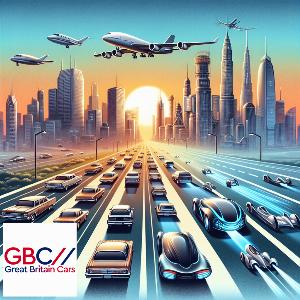
Air Minicabs: Todays Reality and Tomorrows Vision
Blog about Air transfers: Todays Reality and Tomorrows Vision
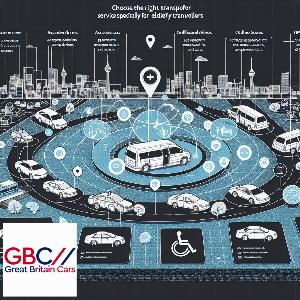
Choosing the Right Airport Minicab Service for Elderly Travelers
Blog about Choosing the Right Airport Transfer Service for Elderly Travelers
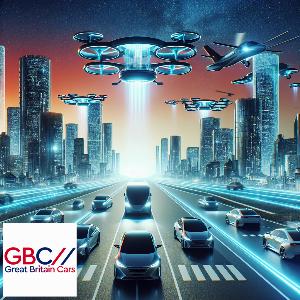
The Transition of Air Minicabs into Air Minicabs
Blog about The Transition of Air transfers into Air transfers
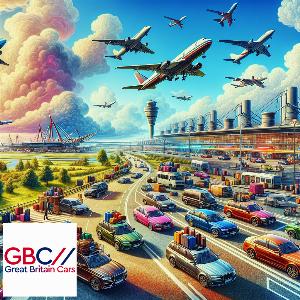
Exploring the UK: Road Trips from Londons Airports
Blog about Exploring the UK: Road Trips from Londons Airports
Blogs Pages
Stansted to the Gardens of Kent: Englands Green and Pleasant Land

Blog about Stansted to the Gardens of Kent: Englands Green and Pleasant Land...
Luton to the Ancient City of Chester: A Cultural Discovery

Blog about Luton to the Ancient City of Chester: A Cultural Discovery...
London for Foodies: Culinary Destinations via Minicab

Blog about London for Foodies: Culinary Destinations via transfer...
The Transformation from Air Minicabs to Air Minicabs
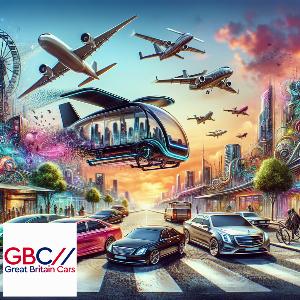
Blog about The Transformation from Air transfers to Air transfers...
Our Clients Testimonials

Best servive
The vehicle is by and large around remained mindful of and cleaned . It was especially fair.
Perez





Extraordinary assistance
It is exceptionally incredible assistance and it's additionally dependable and on time generally. I'm truly dazzled by it.
Ethan





Great service
It is very great service and it's also reliable and on time always. I am really impressed by it.
Aana





Great pick ups
They jolt of energy on the specific time. They give totally best.
Donald





Maintenance
The vehicle is well maintained and cleaned . It was very fair.
Joseph





Executive commute service
They are best in UK. They are providing executive commute service.
David





Fair attributes
It has fair attributes, kind , pleasant ,conversational and unbelievably solid driver.
Hill





Shocking skill
Astoundingly fit and trustful drivers they have . We will utilize this later on.
Lopez





Astonishing ability
Skilful and trustful drivers. We will use this later on.
Evengly





Amazing help
It is astoundingly unbelievable help and it's moreover reliable and on time by and large. I'm genuinely dumbfounded by it.
Brown





Chief drive administration
They are best in UK. They are giving chief drive administration.
Kevin





Professionalism
Very professional and trustful drivers they have . We will use this again.
Olivia





Fair credits
It has fair credits, kind , wonderful ,conversational and unimaginably strong driver.
Baker





Solid and kind
The driver was no question, areas of strength for solid kind .His way to deal with acting was simply awesome.
Wright





Reliable
The driver was so reliable and shown up at in authentic time which was so fantastic.
Abigial





Key booking
Key booking and the driver was on time , careful and strong.
Moore





Basic booking
Basic booking and the driver was on time , aware and strong.
Nathan





Best specialist co-op
They are best specialist co-op. They helped me a great deal in my manner.
William





Dependable
The driver was so dependable and arrived at in legitimate time which was so great.
Grace





Cleanliness
The vehicle is generally around stayed aware of and cleaned . It was particularly fair.
Ryan




